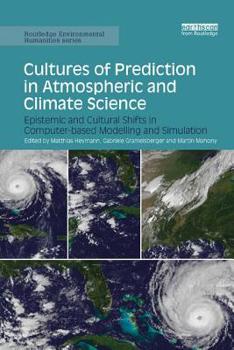Cultures of Prediction in Atmospheric and Climate Science: Epistemic and Cultural Shifts in Computer-based Modelling and Simulation
In recent decades, science has experienced a revolutionary shift. The development and extensive application of computer modelling and simulation has transformed the knowledge‐making practices of scientific fields as diverse as astro‐physics, genetics, robotics and demography. This epistemic transformation has brought with it a simultaneous heightening of political relevance and a renewal of international policy agendas, raising crucial questions about the nature and application of simulation knowledges throughout public policy.
Through a diverse range of case studies, spanning over a century of theoretical and practical developments in the atmospheric and environmental sciences, this book argues that computer modelling and simulation have substantially changed scientific and cultural practices and shaped the emergence of novel 'cultures of prediction'.
Making an innovative, interdisciplinary contribution to understanding the impact of computer modelling on research practice, institutional configurations and broader cultures, this volume will be essential reading for anyone interested in the past, present and future of climate change and the environmental sciences.





